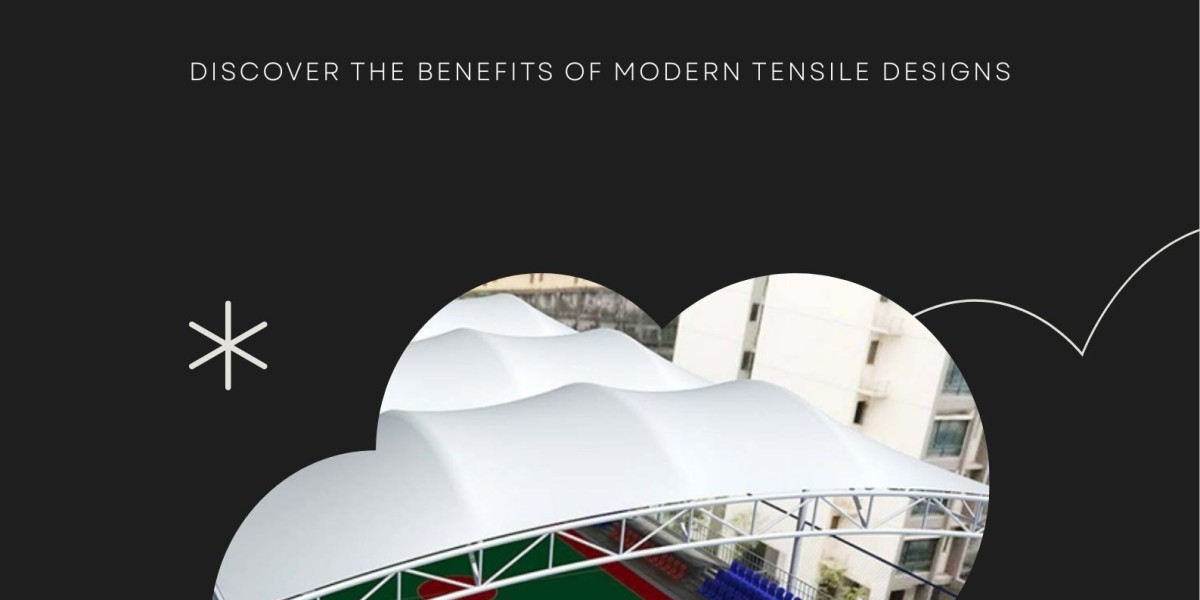In crowded Indian cities like Mumbai, Delhi, Bengaluru, and Chennai, parking space is a daily challenge. With skyrocketing real estate prices and growing vehicle ownership, property owners must look for smart, space-saving parking solutions. A tensile car parking structure is one such innovative solution that offers style, protection, and space optimization — all at an affordable cost.
Read Also:- Best Tensile Car Parking Solutions – Durable & Cost-Effective Protection
What Is a Tensile Car Parking Structure?
Basic Definition
A tensile car parking structure in India is a shade system made from high-tension fabric stretched over a steel framework, typically used in residential societies, corporate offices, malls, hospitals, and commercial complexes.
Difference from Traditional Concrete Parking
Unlike traditional RCC structures, tensile parking systems require minimal space for installation, have low maintenance, and can be customized based on parking layout, sun direction, and available area.
Why Space Optimization Is Crucial in Indian Cities
Urban Overcrowding
With urbanization rising rapidly, metro cities are facing a shortage of parking spaces. Societies and commercial areas are under pressure to accommodate more cars in less space.
Expensive Land Rates
Whether it’s South Delhi, BKC in Mumbai, or Whitefield in Bengaluru, land prices are at a premium. Every square foot saved on construction equals better ROI for builders and developers.
Benefits of Tensile Car Parking Structures in India
Space-Saving Design
Tensile parking systems can be custom-fit into narrow lanes, corners, or irregular plots — perfect for Indian spaces where land is often oddly shaped.
Faster Installation
Unlike civil construction that takes weeks or months, tensile structures are often installed in 3–7 days with minimal disruption.
Affordable Pricing
Most Indian manufacturers offer tensile parking at ₹250 to ₹450 per sq ft, making it more economical than building a full concrete structure.
Aesthetic Appeal
A well-designed parking canopy improves the visual appeal of your home, office, or mall, and can even boost property value.
Materials Used in India
Fabric Types
- PVC Coated Polyester – most common in India due to affordability
- PTFE Fabric – high-end option, mostly used in airports or government buildings
- HDPE Net Fabric – used in budget installations or for temporary use
Steel Framework
- Mild Steel (MS) or Galvanized Steel (GI) with powder coating is used to ensure corrosion resistance in Indian weather conditions (especially during monsoon).
Planning for Space Efficiency in Indian Conditions
Site Analysis
Assessing Vastu compliance, sun direction (East/West exposure), and parking layout is key in India.
Load Calculation
Monsoons bring heavy rains and strong winds, especially in coastal regions like Kerala and Mumbai, so wind load & water drainage must be factored in.
Custom Layouts
From single car parking in bungalows to multi-car setups in apartments, Indian tensile designs are highly modular.
Best Design Options for India
Cantilever Parking Shed
Popular in residential societies and bungalows because it has only back columns, leaving the front area free for easy vehicle access.
Tensile Pyramid Parking Shed
Stylish and symmetrical, ideal for commercial buildings and institutions.
Arch & Cone Shapes
Provide maximum coverage with minimal footprint, great for retail stores, malls, and hotels.
Maintenance Tips for Indian Climate
- Clean the fabric monthly using mild detergent — especially in dusty regions like Rajasthan or UP.
- Tighten bolts and inspect joints before and after monsoon season.
- Check drainage regularly to avoid water logging near the base plates.
Eco-Friendly Benefits
- Reduces heat buildup during summer — a big plus in Indian heat zones like Gujarat, Delhi, and Telangana.
- Most materials used are recyclable, aligning with India’s push for green infrastructure.
Real-Life Examples in India
- DLF, Gurugram – Uses tensile shade structures in their corporate parks.
- BIAL Airport, Bengaluru – Has tensile roof systems in passenger drop zones.
- Phoenix Mall, Mumbai – Offers shaded tensile parking in the open-air zones.
- Societies in Pune & Noida – Widely use cantilever-style sheds for covered car parking.
Cost vs. Benefit in Indian Context
Feature | Tensile Parking Shed | Traditional RCC Shed |
Installation Time | 3–7 Days | 2–4 Months |
Cost per sq ft | ₹250 – ₹450 | ₹600 – ₹1000+ |
Aesthetics | Modern & Clean Look | Bulky & Conventional |
Flexibility | High | Low |
Choosing the Right Supplier in India
What to Look For:
- Experience with local regulations and municipal permissions
- Use of BIS-certified steel and fire-retardant fabric
- On-site installation team with structural warranty
Top Cities with Leading Manufacturers:
- Delhi NCR (Noida, Gurugram, Faridabad)
- Mumbai
- Hyderabad
- Bengaluru
- Ahmedabad
Common Mistakes to Avoid in India
- Ignoring drainage and water flow during monsoon
- Choosing cheap fabric that fades in the sun
- Not accounting for local wind speeds and structural anchoring
- Using painted steel instead of GI-coated steel (which lasts longer)
Conclusion
For property developers, business owners, and homeowners in India, tensile car parking structures offer an affordable, elegant, and space-efficient solution. With rapid urban development and limited parking spaces, it’s time to adopt a smarter way of managing vehicle parking — one that’s easy to install, looks great, and stands the test of time.
FAQs – India Specific
Q1. What’s the average cost of a tensile parking shed in India?
A: Around ₹250 to ₹450 per sq ft, depending on design and materials.
Q2. Can it handle Indian weather conditions?
A: Yes, when designed properly, it can withstand heavy rains, strong winds, and intense sun.
Q3. Do I need permission from local authorities?
A: For large or commercial structures, yes. Residential installations often need society or municipal approval.
Q4. How long will it last?
A: With proper maintenance, the structure can last 15–20 years easily.
Q5. Is it suitable for hilly or uneven areas like Himachal or Uttarakhand?
A: Yes, tensile systems can be custom-designed for sloped or uneven terrain.



